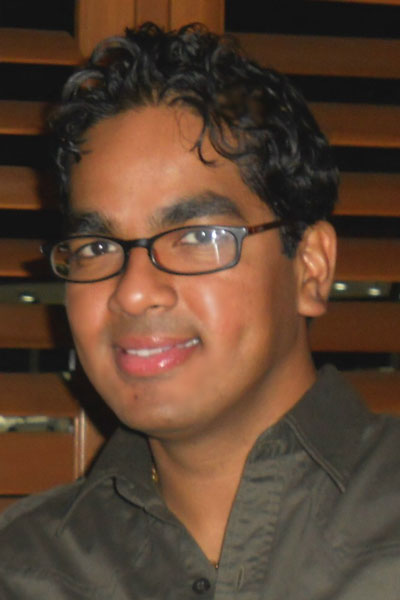Nigel Gopie
 Rotman Research Institute, Baycrest
Rotman Research Institute, Baycrest
What does your research focus on?
How does memory facilitate our communication? Memory underlies our ability to retrieve the name of a colleague or to remember what we said to a friend a week ago so we do not repeat a joke or information. My research focuses on how memory facilitates these socially important tasks.
What drew you to this line of research? Why is it exciting to you?
Forgetting the names of familiar people and prefacing conversations with, “Have I told you this before?” is not just prevalent among older adults but it is also a common problem among people in my generation. These cognitive lapses are still not well understood and it excited me to shed light on these socially significant processes.
Who were/are your mentors or psychological influences?
I am fortunate to have had excellent mentors throughout my training as a psychology researcher. Morris Moscovitch at the University of Toronto ignited my passion for researching how people process information and understand their world; Colin MacLeod at the University of Waterloo taught me the importance of careful methodological research and instilled the value of achieving a successful academic work and personal life balance; and Fergus (Gus) Craik at Baycrest, a University of Toronto teaching hospital, reinforced the importance of keeping in mind a solid theoretical framework during the research process. Most importantly, Morris, Colin, and Gus provide gentle guidance and helpful advice during all facets of life.
To what do you attribute your success in the science?
My mentors and supportive University of Toronto and Waterloo colleagues, an unstinting desire to sate my intellectual curiosity, and a good dose of luck have resulted in successes in science.
What’s your future research agenda?
I have only begun to understand the pivotal role of memory in our complex social interactions and would like to further explore this avenue of work. I am also currently using neuroimaging technology (fMRI) to advance neurocognitive theories and this will play an important role in my future research as neuroscience and cognition continually augment each other.
Any advice for even younger psychological scientists? What would you tell someone just now entering graduate school or getting their PhD?
Junior academics, including myself until not too long ago, often believe that the academic path is straight and narrow. My advice is to carefully choose academic mentors, to savor the journey, to celebrate all forms of success, and to boldly seize opportunities that will broaden your personal and professional horizons.
What publication you are most proud of or feel has been most important to your career?
I am most proud of my first publication regarding destination memory, memory for what we tell to whom, which is complementary to source memory. This research was published in Psychological Science and was a labor of much love, resonated with academic colleagues and international media, and continues to be a source of inspiration for one of my research programs.





APS regularly opens certain online articles for discussion on our website. Effective February 2021, you must be a logged-in APS member to post comments. By posting a comment, you agree to our Community Guidelines and the display of your profile information, including your name and affiliation. Any opinions, findings, conclusions, or recommendations present in article comments are those of the writers and do not necessarily reflect the views of APS or the article’s author. For more information, please see our Community Guidelines.
Please login with your APS account to comment.